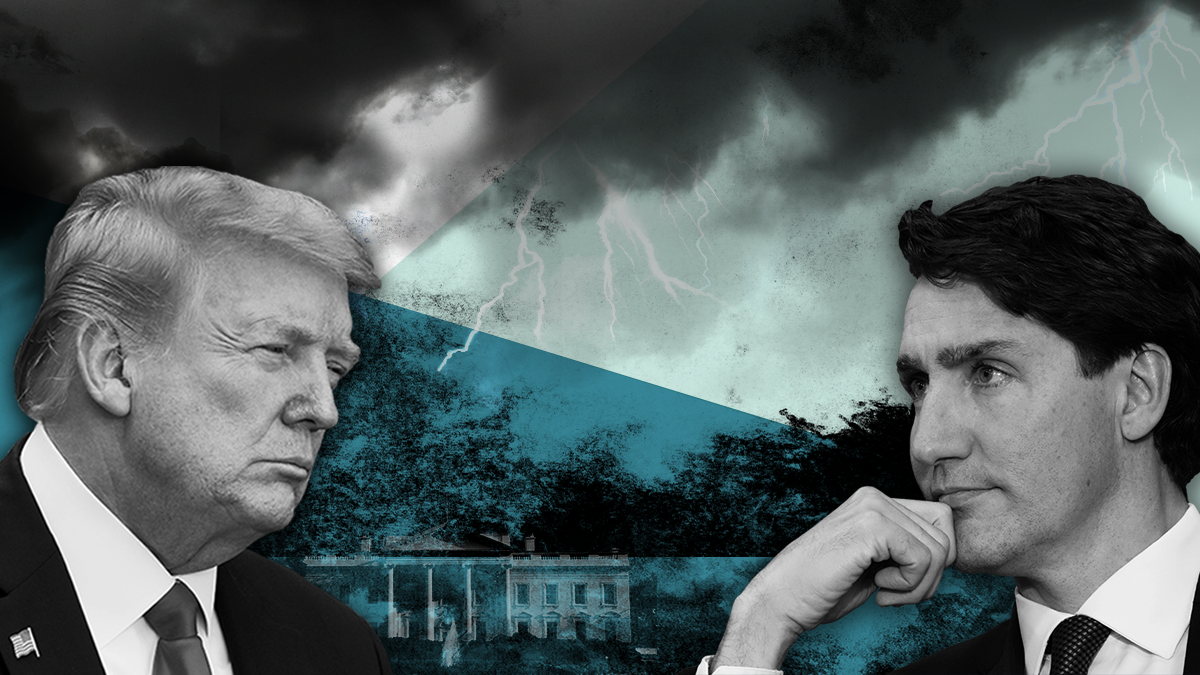The struggling government of Justin Trudeau tried Tuesday to cast itself as the group to handle the vital relationship with the United States — announcing a "Team Canada engagement strategy” at the end of a cabinet retreat — but observers are dubious about the government’s ability to pivot its way out of trouble by invoking the specter of Donald Trump.
Trudeau, who has been trailing his Conservative rival Pierre Poilievre in the polls by double digits since August, reminded voters that his government did a good job salvaging the trade relationship the last time Trump was in the White House, when Trump threatened to tear up NAFTA, and Trudeau managed to save the furniture and negotiate USMCA.
“We made it through the challenges represented by the Trump administration seven years ago, for four years, where we put forward the fact that Canada and the US do best when we do it together,” he said. “Obviously, Mr. Trump represents a certain amount of unpredictability.”
As they did last time, the Liberals are putting together a new Team Canada — drawing on representatives of other levels of government, business, labor, and academia. The team will be led by Industry Minister Francois-Philippe Champagne, International Trade Minister Mary Ng, and Kirsten Hillman, Canada's ambassador to the U.S., who gave a presentation at the cabinet retreat.
Who best to handle Trump?
This is a good move, says Christopher Sands, director of the Wilson Center’s Canada Institute. “Team Canada works when it puts Canadians on a focused, common message as was the case during the USMCA negotiations. Champagne, Ng, and Hillman are a good group to have as the face of the effort.”
But the government should be thinking about practical and serious steps to improve the relationship. “If Canada has no plan to increase defense spending, support the EV transition, export food and natural gas to allies in Asia and Europe, then all the feel-good rhetoric Canada can muster won't be enough,” says Sands.
Trudeau’s team signaled at the summit that the Liberals will try to connect Poilievre to Trump in the minds of voters, and get them thinking about who would be better off dealing with Trump.
It is not clear to Sands that this issue will give Trudeau the political boost he is looking for. Trump, after all, did not get along with Trudeau. “All that water under the bridge is going to be clouding Trudeau's relationship with Trump if he gets elected.”
When Canada hosts the G7 in 2025, would it really be good to have a replay of the 2018 G7 meeting in rural Quebec, which ended with Trump denouncing Trudeau from Air Force One as he left for North Korea?
“If it's Trudeau hosting Trump back for a second time, I just couldn't imagine what the sherpa will have to go through to be preparing that one,” says Sands.
Liberals look desperate
Graeme Thompson, a senior analyst with Eurasia Group's Global Macro-Geopolitics practice, doesn’t think this will work: “It does suggest that the government is somewhat desperate,” he says. Conservatives can argue that since Trump and Trudeau don’t get on, they might be better placed to manage the relationship, and what if Trump isn’t elected? “If Biden wins, that argument is dead.”
And Biden has better electoral prospects than Trudeau, according to pollster David Coletto, who concluded this week that Trudeau has little chance of winning another election. Trudeau seems out of touch with the top-of-mind concern of Canadian voters: the high cost of living. His firm, Abacus Data, recently found that the rising cost of fuel and food is the most important issue for three out of four Canadians — an unusually dominant concern.
Biden looks better
The bad news for Trudeau is that only one in four Canadians believe he “understands what life is like for people like you,” while two in four believe Poilievre does.
Inflation is brutal for incumbent governments — in the United Kingdom, United States and France the leaders are all facing stiff headwinds — but Coletto thinks Trudeau’s brand leaves him ill-suited to respond to a public dealing with scarcity.
Biden, on the other hand, could still pull off a win. “Biden is, I still think, better than 50-50. The odds are still in his favor, although not greatly. I think Trudeau has got a 10% chance of winning the next election.” Polling agrees. The horse race numbers for Trump-Biden show a tight race, while Trudeau has been far behind of his opponent for six months.
On Wednesday, a backbench MP in Trudeau’s party called for a leadership review, saying “there’s almost a hatred out there right now for [him].”
Unlike Trudeau, Biden has put an economic plan at the heart of his presidency, and the economy may be turning around. The Dow Jones and S&P 500 both hit record highs on Monday, and consumer confidence reached its highest point since 1991. Economists who study the relationship between the economy and politics think the signs augur well for Biden.
Trudeau does not look poised to benefit in the same way, says Coletto.
“At some point voters just say, ‘I'm done with you.’”






